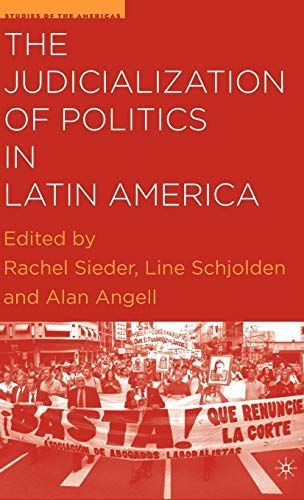
The Judicialization of Politics in Latin America
During the last two decades the judiciary has come to play an increasingly important political role in Latin America. Constitutional courts and supreme courts are more active in counterbalancing executive and legislative power than ever before. At the same time, the lack of effective citizenship rights has prompted ordinary people to press their claims and secure their rights through the courts. This collection of essays analyzes the diverse manifestations of the judicialization of politics in contemporary Latin America, assessing their positive and negative consequences for state-society relations, the rule of law, and democratic governance in the region. With individual chapters exploring Argentina, Brazil, Chile, Colombia, Costa Rica, Mexico, Peru and Venezuela, it advances a comparative framework for thinking about the nature of the judicialization of politics within contemporary Latin American democracies.